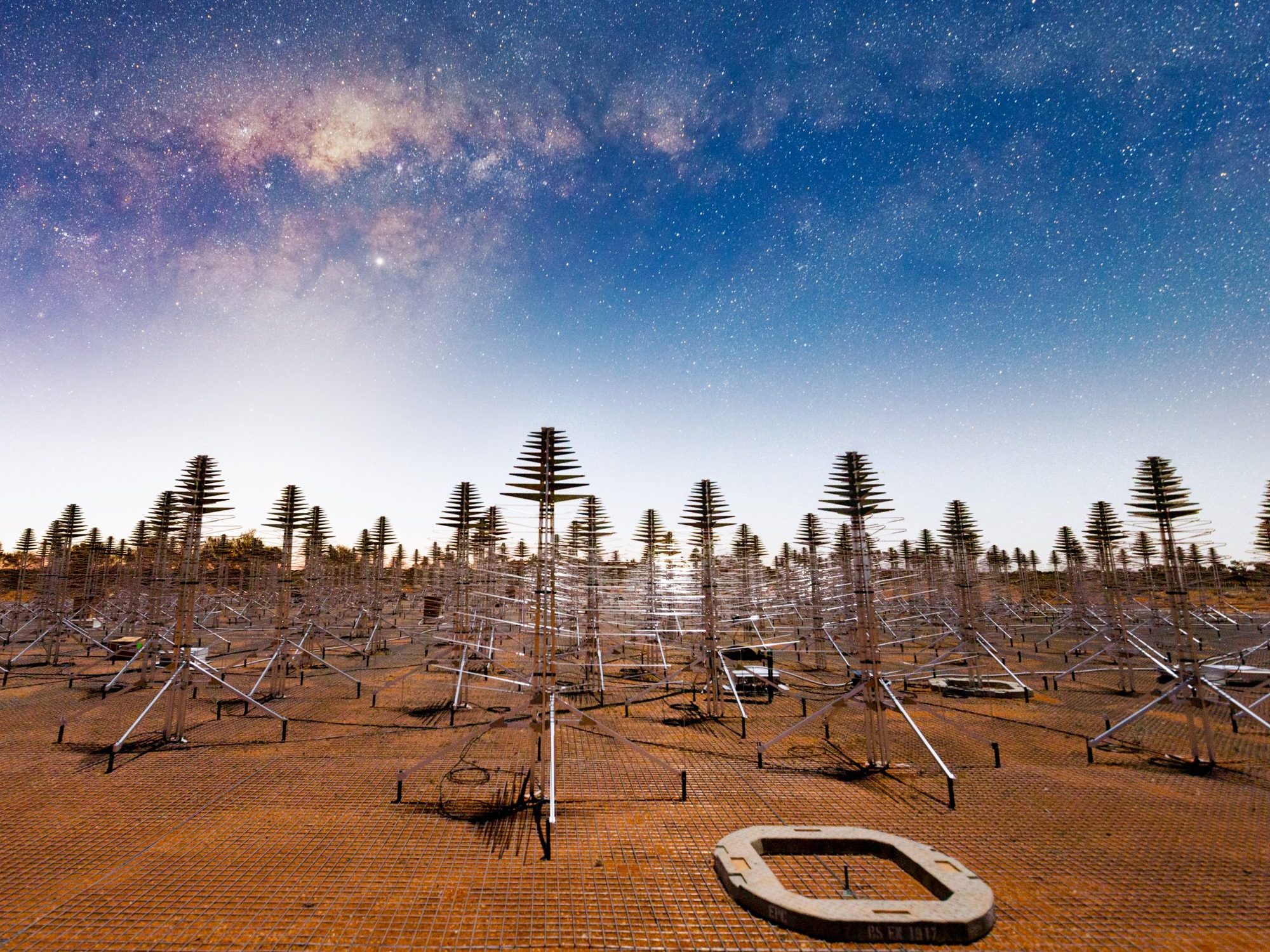

Construction on a new radio telescope array composed, partially, of over 130,000 Christmas tree-shaped antennas in the Australian Outback has officially begun . Once completed, the Square Kilometer Array (SKA) could become “one of humanity’s biggest-ever scientific endeavors,” according to the project’s Director-General. First proposed in the 1990s, the SKA will combine the thousands of antennas in Western Australia with a network of dishes in a remote region of South Africa to form one large, interconnected “virtual dish” system as if it were a single, gigantic piece of equipment. The result is a radio telescope so sensitive it could pinpoint the signal of a smartphone “in the pocket of an astronaut on Mars” over 139 million miles away, said Danny Price of the Curtin Institute of Radio Astronomy to Phys.org. The first phase of the project is expected to be completed in 2028—a tenth of the end goal which aims to install thousands of dishes and one million antennas.
The SKA components’ two remote locations and their minimal amounts of radio interference will allow it to detect extremely faint signals generated by sources billions of light years away. Radio signals are emitted by a host of cosmic bodies, and generally sound like the white noise. Advanced radio telescopes such as the SKA can hear signals from hundreds of millions of lightyears away, which computers subsequently can use to analyze and form images.
[Related: Crunching the Big Bang with the greatest supercomputer ever built.]
Some of its forthcoming results will even have originated within the universe’s first billion years of existence, when the very first stars and galaxies came into being. “These are radio waves that are the same as the ones that come from FM radio stations,” Douglas Bock, director of space and astronomy at Australia’s Commonwealth Scientific and Industrial Research Organisation (CSIRO), told ABC News Australia. “Those very early radio waves tell us what the state of the early universe was … and how we got to be here on planet Earth,” he said.
Such numbers put the project’s estimated 50-year-lifespan into stark perspective. Still, the endeavor’s estimated half century of international collaboration might be enough to hopefully answer some of astronomers’ most longstanding and pressing questions about the universe, including inquiries into Einstein’s theory of relativity, the nature of dark matter and, potentially, dark energy, and perhaps even extraterrestrial life. The SKA will add to what has already been a big year for major radio telescope projects. Just last month, China completed work on its Daocheng Solar Radio Telescope array that will be used to study the sun’s many solar flares and plasma eruptions.
[Related: The Daocheng Solar Radio Telescope is fully constructed.]
It’s been a long, contentious road to SKA’s green light. The region in which the SKA is being constructed has long been home to the Aboriginal Australian Wajarri people, and many in the community have expressed hesitation, concern, and skepticism over the project. “At the centre of [the negotiations] is how do we uphold the responsibilities and obligations that we are born into, which is to preserve and protect and maintain the dignity of our culture, people and land,” Dwayne Mallard, a negotiator for the Wajarri, told ABC News Australia, adding, “We’ve certainly done that to the best we can.” Others expressed concern that promises will be broken. Among the stipulations within the newly signed Indigenous Land Use Agreement (ILUA) are a confidential cash payment alongside promised job, training, and education opportunities for the Wajarri people.
